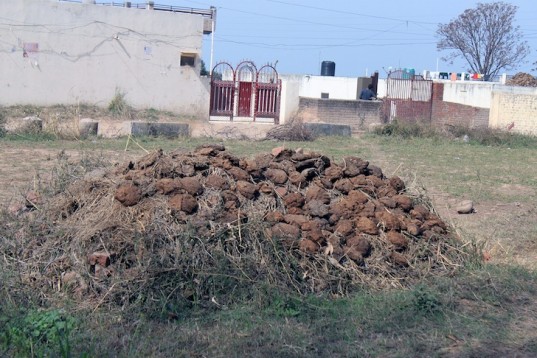Giant Pandas are well-loved for their distinctive appearance and sedentary nature. Now they will receive even greater adoration and attention for their bowel-based contribution to the development of a clean energy future. In a national meeting at the American Chemical Society, researchers presented a study identifying panda poop as a source of enzyme-producing bacteria that breaks down plant materials in a way that is useful for biofuel production.

Corn-based biofuel production has reached 13 million barrels per year, but processing land and energy-intensive food crops such as corn, soybeans, and sugar is costly and often uses environmentally-damaging chemicals or harsh acids. Enzymes are known to perform the same function, but often take more time and have trouble breaking down a majority of the agricultural waste (stalks and husks of plants, wood chips, switchgrass, and corn stover) that also acts as raw material for the biofuels industry. Producing biofuel from this cellulosic-rich biomass is necessary if our aim is to make biofuels an eco-friendly and cost competitive alternative to gasoline.
Inspired by the giant panda’s voracious appetite for bamboo, scientists began to study the fecal matter of giant pandas at the Memphis Zoo. A year of samples indicated that the pandas have a unique ability to convert lignocellulose from plant matter into energy. In fact, gut bacteria of a giant panda can convert 95 percent of the plant’s biomass into simple sugars. This is a marked improvement upon bark beetles, termites, and the ruminant stomachs of cattle, which have also contain biomass conversion capable enzymes.

Instead of harvesting the enzyme-rich poop from bamboo forest floors in the mountains of China, the next step will be to sequence the specific gene(s) responsible for the highly-active enzyme. Once isolated, the gene(s) will be put into a yeast and the yeast culture will produce the enzymes capable of digesting and converting biomass on a commercial scale.
This is good news for the the commercial biofuel industry, which is expected to advance rapidly as a result of President Obama‘s recent announcement that the US Department of Agriculture, Energy, and Navy will invest $510 million in biofuel production by 2014. This discovery gives biofuels another big boost, but it should also serve as a reminder of the importance of biodiversity and the role it plays in innovating technologies, medicines, and materials.
Source: inhabitat

 Follow
Follow